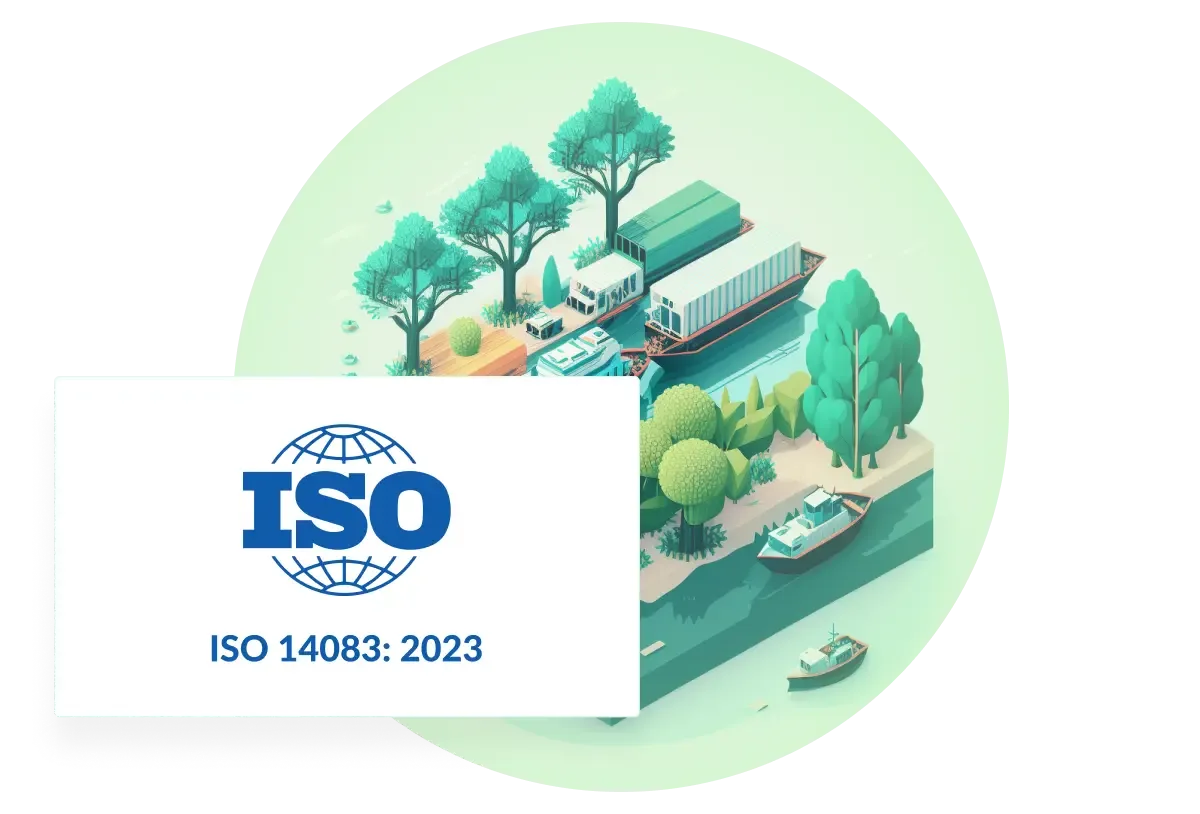Our compliance with ISO
ISO 14083 is an internationally recognized standard for environmental management systems (EMS) and provides universal guidance for the quantification and reporting of greenhouse gas (GHG) emissions arising from the operation of transport chains for freight. It offers a framework for organizations to develop and implement policies and procedures that help minimize their environmental impact. Routescanner has been certified with ISO 14083.

Why ISO 14083
ISO 14083 is a crucial step in the global logistics industry. It gives us a standardized way to measure and report GHG emissions in multi-modal supply chains. By promoting consistency and transparency, this standard helps combat climate change and encourages sustainable practices in the logistics sector.
GHG Emission Calculation
ISO 14083 guides us in calculating GHG emissions step by step. It breaks down the transport process into parts called "Transport Chain Elements" (TCEs). Each TCE corresponds to a specific transport or hub operation, further categorized into a Transport Operation Category (TOC) or a Hub Operation Category (HOC). These categories help us calculate emissions more precisely.
Reporting GHG Emissions
ISO 14083 includes requirements for reporting GHG emissions at both the organizational and transport service level. It provides examples tailored to freight transport and offers a template for transparent reporting using modeled or default GHG emission intensities. The annex of ISO 14083 has specific requirements and recommendations for different modes of transport.
GHG Emission Calculation
ISO 14083 guides us in calculating GHG emissions step by step. It breaks down the transport process into parts called "Transport Chain Elements" (TCEs). Each TCE corresponds to a specific transport or hub operation, further categorized into a Transport Operation Category (TOC) or a Hub Operation Category (HOC). These categories help us calculate emissions more precisely.